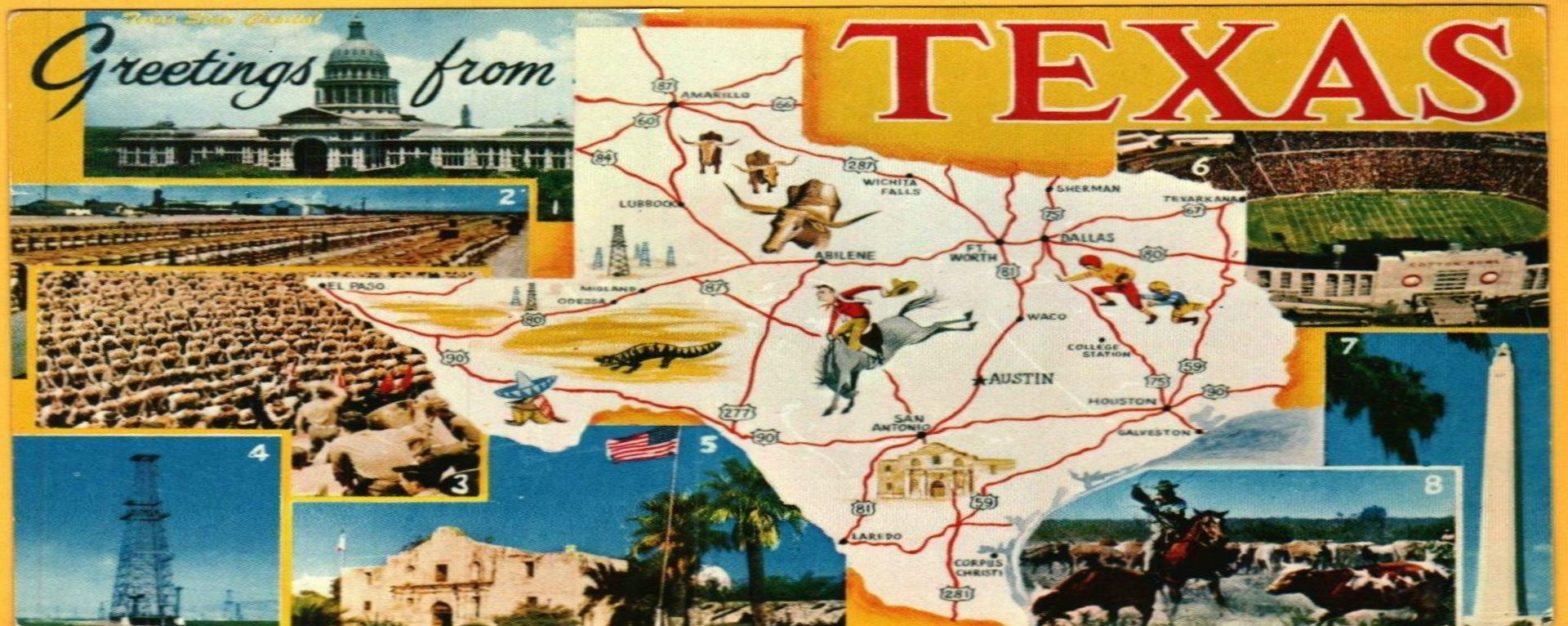It just gets weirder and weirder in the Lone Star State, where the battle over poker’s present and future currently rolls on across several battlefronts, none of which have much to do with the online game. Instead, it’s the social-club poker scene, the workaround to existing Texas gambling laws that poker-loving entrepreneurs have embraced, that has everything in a topsy-turvy turmoil.
And whether the social-club poker scene in Texas has the chance to expand in a significant way or is on the verge of a statewide clampdown is very much in the air. Stay tuned, as they say, throughout 2023. By the end of the year much of the mystery about Texas’s poker as a live-poker state should be resolved… one way or the other.
Social-club poker scene in Texas dates to 2015
In Texas, semi-private social clubs offering real-money poker have been around since early 2015, when the first such club, Austin’s Texas Card House, opened its doors. The model that TCH implemented and that has since been copied by dozens of other Texas clubs circles around Texas gambling laws that would otherwise ban the game from being offered in commercial venues.
Specifically, Texas law forbids collecting rake at the tables. Instead, the clubs generate revenue by selling memeberships — anywhere from daily to annually — and/or by charging seat or time fees. The clubs’ owners have always asserted that operating in such a manner is the equivalent of, say, a country fee that charges membership fees and is allowed, under Texas law, to host private games on its premises.
But it’s been a battle. Numerous clubs have been raided over the years, though the legality of social-poker clubs has yet to be adjudged in a formal trial. No one wants to be that club that has to bear the expense of a battle that could take years and end up in the Texas Supreme Court, and several club owners have taken relatively lenient plea deals and closed up shop in the face of anti-poker local and county enforcement efforts.
The battle between the wealthy and those less so
There’s a strong element of the battle over live poker in Texas that falls along traditional lines of socioeconomic power and status. Texas’s existing laws that govern poker clearly favor the wealthy. All those games that take place behind country-club and fraternal-organization walls don’t have to worry in the slightest about being raided, but if you’re not privy to that higher-status stuff, you’re general shit outta luck, at least in the strictly legal sense.
Even when the social-poker scene established a toehold, generally in Texas’s largest cities, it was tolerated in only a limited manner, since certain better neighborhoods, and virtually any suburb, have been considered off-limits to poker clubs on unofficial “NIMBY” (Not In My Back Yard) grounds.
That’s been seen nowhere more clearly than in Dallas, where one prospective club owner’s plans to open in a converted restaurant not far from a country-club development led not only to pushback that stopped that club’s plans, but also resulted in Dallas’s city government attempting to revoke the operating licenses of three other clubs already open and doing business in the city. All three of those clubs are now entangled in legal cases with Dallas officials, and it’s probable that one of these cases could be the precedent-setting matter under Texas law.
Weirdness #1: No matter which side prevails, the cases will feature Dallas paying legal fees on both sides of the case. Since the clubs now facing closure attempts are operating under occupancy licenses issued by the city’s zoning officials, and since those officials refused to nullify those licenses themselves, the Dallas City Council then sued those zoning officials for exceeding their duties. Let the lawyers rejoice!
NIMBY forces clubs to lower-income neighborhoods
In order to avoid the worst of the NIMBY offensive, most club owners quickly learned that the neighborhoods where their planned clubs were likely to win local approval were in lower-middle income neighborhoods, often in strip malls or in converted standalone businesses such as restaurants.
Most of these neighborhoods also feature higher-than-average crime rates, but that’s what was available. So there the clubs went. And Texas clubs have been victims of occasional violent crimes — shootings, stabbings, armed robberies, a small handful of each. Anti-poker people would declare that, well, that’s the element that poker attracts, though the larger truth is that the live poker in Texas has already been forced into the areas where those crimes are more prevalent.
It’s a self-fulfilling truism. There’s no easy fix, either, and it parallels in many ways the battles that larger, commercial casinos face when attempting to build venues anywhere in the country. Gamblers want the venues built nearby, but not too close, if you get their drift.
The legislative battle commences
Regardless of how the Dallas poker-room battles end up in the courts, it may a legislative change that renders a more permanent say in the matter. At least three bills pertaining to the legality of social-club poker in Texas have been introduced in Texas since the start of 2023.
Two of the three bills would make changes favorable to Texas’s poker clubs in the state’s existing gambling laws. Those are a House measure, HB 2345, introduced by State Rep. Ryan Guillen in February, and a companion Senate bill, SB 1681, introduced by State Sen. Jose Menendez just last week.
Menendez, our older readers might remember, is that rare Texas pol who’s been pro-poker for a long time. Back in the post-UIGEA years, the late ’00s, when he was a state representative himself, Menendez tried unsuccesfully to get live poker rooms legalized in the Lone Star state in at least three different sessions. Menendez did succeed in getting one of those bills out of committee, but it really never had a chance back then in the face of the anti-gambling Texas Two-Step.
Oh, yeah, that third Texas bill so far in 2023. That’s a measure introduced by State Rep. Gene Wu in January. In its current form, Wu’s bill would effectively end the club-poker era in Texas by changing a single word in Texas’s existing gambling laws. That change is to replace “premise” with “residence”, referring to places where private poker games are legal.
Wu has claimed that despite the bill’s language his intent is to support legalized gambling across the state, and that the bill he submitted doesn’t actually reflect his real intent. Why he submitted it in that form, though, remains unexplained. Weirdness #2: Wu’s district on Houston’s west side, the Westchase neighborhood, includes at least four social-poker clubs, at least three of which have either been raided, been accused of illicit operations, or have been crime scenes, amidst what is one of Houston’s highest-crime areas. I spent three weeks there last year, and I can affirm it’s a mite iffy in spots.
The thing is, the more poker bills that flood the Texas legislature, the more likely it is that any of them will gather the needed support to become law. That’s both good news and bad news for poker in Texas, in that Wu’s anti-poker measure (as it currently exists) might not fare that well, but the flip side is that the matter might well then be decided in the courts via the Dallas cases.
A favorable ruling if one of those cases moves to a conclusion is anything but certain. And as the saying goes, it’s hard to unring a bell.

